India’s No. 1 Online Admission Portal Apply Now
India’s No. 1 Online Admission Portal Apply Now
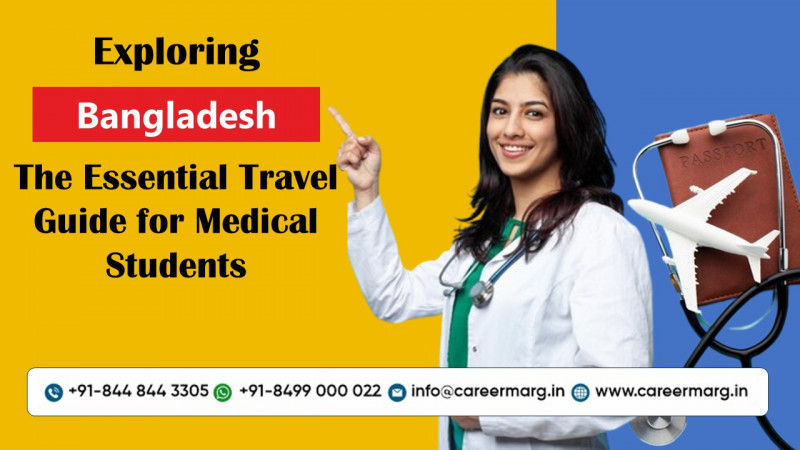
Bangladesh is an up-and-coming destination for medical students seeking valuable clinical and research experience abroad. This comprehensive guide covers everything you need to know to plan your medical education trip to Bangladesh.
Are you interested in pursuing an MBBS in Bangladesh? Please visit our 'MBBS in Bangladesh' page or contact us for additional information.
Bangladesh has a tropical monsoon climate consisting of a hot and rainy summer and a cooler and drier winter.
The best time to visit medical students is October to March when the weather is more relaxed and drier. Summers can be sweltering and humid.
MonthAverage TempRainfallFestivals
October 27°C Light rain
November 24°C Light rain
December 21°C Light rain Victory Day (16th)
January 18°C Light rain
February 22°C Light rain International Mother Language Day (21st)
March 26°C Light to moderate rain Independence Day (26th)
Dhaka is the capital and leading destination for medical students. It houses the country's top medical schools, hospitals, and universities. Conduct clinical rotations at institutions like Dhaka Medical College or take coursework at Jahangirnagar University.
For rural healthcare exposure, look to regional clinics and community health centers like Chittagong, Sylhet, Rajshahi, and more. Learn about tropical diseases and conditions common in agricultural/fishing communities.
As a medical student in Bangladesh, plan to budget:
Apply for scholarships and grants in advance to offset costs. Have at least $2,000 saved as a contingency fund.
Choose accommodations near your home institution to avoid long transit commutes. Neighborhoods like Dhanmondi, Mohammadpur, and Lalmatia offer student housing and access to classes/clinics.
Medical students typically obtain a Student Visa permitting annual stays for 5-12 months. Gather these documents and apply at least 3 months pre-departure:
The visa application involves an in-person appointment and takes 2-4 weeks to process.
Bangladesh offers diverse clinical and research programs catering to visiting medical students, with abundant new experiences in tropical medicine and community healthcare delivery.
Consult directories like - GDe Research and Travel Programs linking medical students to Bangladesh institutions offering rotations. Browse current openings matching your interests.
Reaching out to hospitals and medical/nursing schools directly can uncover unique shadowing and project-based experiences. Send a professional introductory email with your CV/resume, preferred specialization, and desired timeframe for the opportunity.
Expect 1-3 rounds of applications and interviews before securing a placement. This may include writing statements of interest detailing skills and goals for the program. Give at least 6 months leeway when applying to enable visa processing.
Clinical rotation placements typically involve shadowing healthcare providers in hospital and community settings over 8 to 12 weeks. Expect 40-60 hour weeks observing diagnoses, treatments, surgical procedures, and discharge practices across pediatrics and oncology specializations. Maintain detailed journals tracking experiences to receive credit.
Those seeking more intensive exposure may apply for longer medical internships through organizations like AIESEC. Gained hands-on patient care responsibility over 6- to 12-month placements in regional clinics and primary care facilities under direct physician supervision. These build invaluable experience delivering healthcare in resource-limited settings.
Research Projects typically last from 2 weeks to 6 months, depending on scope. Work on community public health initiatives, analyzing disease outbreak data, or conducting environmental impact studies. Projects through university-affiliated programs offer opportunities to co-author papers as well.
Cultural norms in Bangladeshi healthcare emphasize community care, with deference to organizational hierarchies. Take the initiative in hands-on participation while allowing supervising practitioners to dictate responsibilities until trust develops. Recognize that access to diagnostic tools and medications may be limited by infrastructure deficits. Provide compassionate care within systemic resource constraints.
Build professional networks with peers, instructors, specialist physicians and public health officials throughout the program. These contacts foster future collaborations and open doors to residency placements or advanced degree programs on returning home.
Bangladesh's tropical climate exposes visitors to new health and safety considerations, from air quality issues to risks of infections. We cover core precautions for maintaining personal well-being during educational visits.
The following vaccinations should be received at least 2 months before departure:
Consult with travel health specialists about malaria prophylaxis regimens and bring epi-pens for allergic reactions.
Acquire any routine medications to bring at least a 6 week supply - identifying local pharmacies carrying your prescriptions can prevent disruption if longer stays eventuate.
Safe food and water practices are imperative:
Cholera and other gastrointestinal illnesses from unsanitary conditions pose risks. Carry oral rehydration solutions. Get medical care promptly if experiencing severe vomiting/diarrhea.
Use mosquito repellants, protective clothing, bed nets, and fans/AC to minimize insect bites that may transmit Dengue Fever or Malaria.
Closely follow all medical/university protocols regarding infectious disease control when interacting with patients during clinical rotations.
High-quality private hospitals staffed by English-speaking physicians are located in major cities should emergencies occur. These include:
Carry medical and emergency contact details at all times. For serious incidents, dial 999 to activate ambulance services. Most healthcare providers accept credit card payments or arrange payment plans.
Consider emergency medical evacuation coverage through insurers like MedJet or International SOS, facilitating transport to home countries for acute care if stabilized.
Comprehensive international student health insurance covering illnesses, accidents, evacuations, etc, is mandatory. ISO International Student Insurance offers full-service plans as low as $1.50 daily. Enrollment in the school's policy may be required - budget $100-$300 monthly for coverage. Print cards detailing policy numbers and emergency contacts.
Experiencing Bangladesh's rich culture and warm hospitality leaves lasting impressions on visitors. Its bustling bazaars, fragrant cuisines, and vibrant customs give visitors a lifetime of memories.
Carve out weekends for cultural excursions to sites like the Bagerhat's 60 Dome Mosque, a 15th century architectural marvel, or the ornate terracotta designs of Kantajew Temple.
Use student discounts for events like concerts at Army Stadium and cricket matches at Sher-e-Bangla National Stadium.
Bangladeshi cuisine reflects a confluence of cultures. Savor these popular dishes:
Be sure to sample street food specialties like fried chickpeas, tangy pidas (fried lentil balls), and nomadic "Halim" porridge.
Bangladeshis are expressively social, gathering frequently with extended families, neighbors, and close-knit religious communities. Seek invitations to traditional weddings, witnessing elaborate rituals and attire. Attend local festivals like Pohela Falgun, which welcomes spring with concerts and fairs.
Cricket reigns supreme as the national pastime, but soccer, badminton, and field hockey also draw passionate fans. Support a Premier League team or join soccer kickarounds in parks.
Residents flock to riverfronts and terraced tea stalls on weekends to trade news and stories over chai. Join in and gain an appreciation of daily joys.
A smooth trip starts with thorough preparation. Dig deeper into resources like Lonely Planet's Bangladesh Travel Guide, covering regional insights.
Connect with past students from your home university to Bangladesh for campus recommendations. Join Dhaka Medical College International Student Groups to find roommates or travel partners.
But most importantly, keep an open-minded attitude of flexibility. Follow locals' leads adopting a carefree "halchal" philosophy. Absorb and delight in each unique moment during your Bangladesh medical education journey.
Let me know if you have any other questions!
No Comments Found
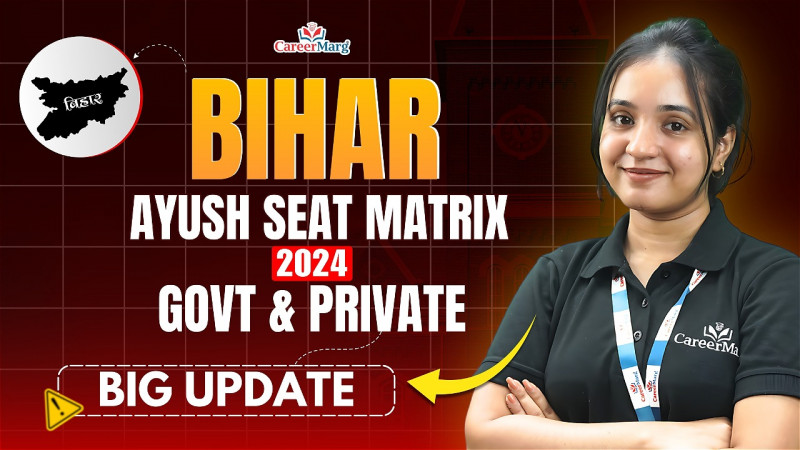
BAMS Seat Matrix of Private Ayush Colleges of Bihar for UGMAC[AYUSH] 2024 are as follows below:INSTITUTIONCOURSEState Quota SeatsAIQTotalD.A. Medical College & Hospital SiwanB.A.M.S.51960Swami Raghavendra Tridandi Ayurveda College, GayaB.A.M.S51960Shree.M.S....
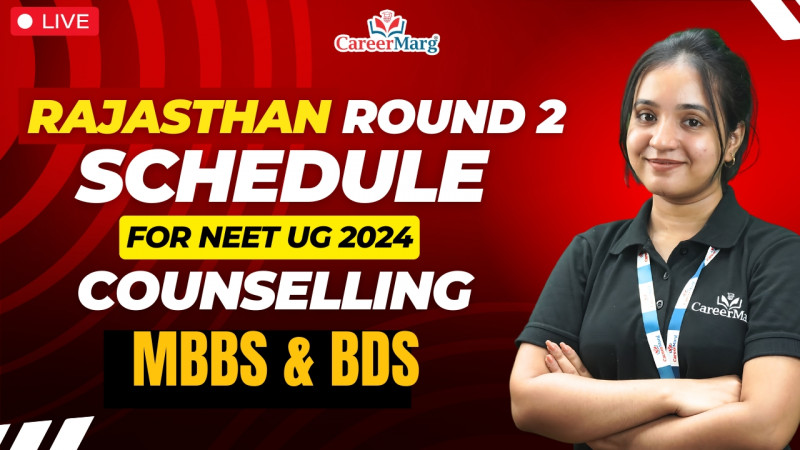
Rajasthan MBBS 2024, Rajasthan NEET Cutoff, Round 1 Final Cutoff, Round 2 Expected Cutoff, Rajasthan NEET 2024, NEET 2024 Cutoff, Rajasthan Medical Colleges, MBBS Admission 2024, Rajasthan MBBS Counselling, NEET UG 2024, NEET 2024 Round 2, MBBS Cutoff Rajasthan, Rajasthan Government Medical College, Private Medical College Rajasthan, NEET Counselling....
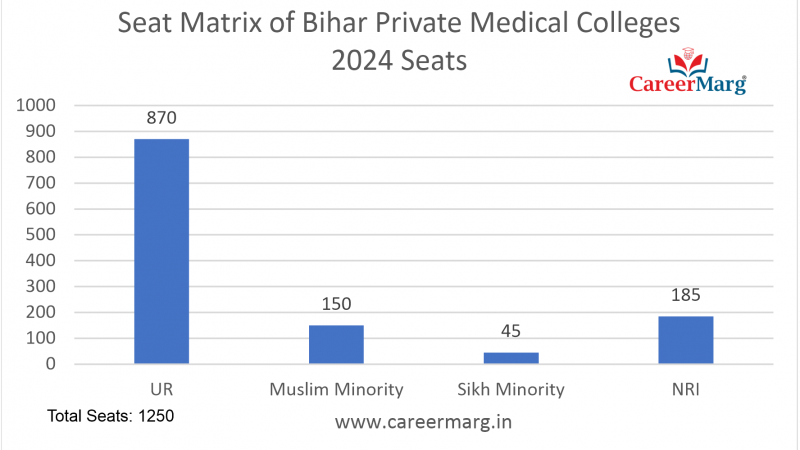
Seat Matrix of Bihar Private Medical Colleges by UGMAC-2024 are as follows below:INSTITUTIONSCOURSETYPECATEGORYTOTAL SEATSURMUSLIM MINORITYSIKH MINORITYNRIKatihar Medical College (Kathihar)MBBSPrivate5375022150 SeatsM.G.M.M.C (Kishanganj)MBBSPrivate8204523150 SeatsN.M.C.H (Sasaram)MBBSPrivate2130037250 SeatsLord Budha Koshi Medical College &....
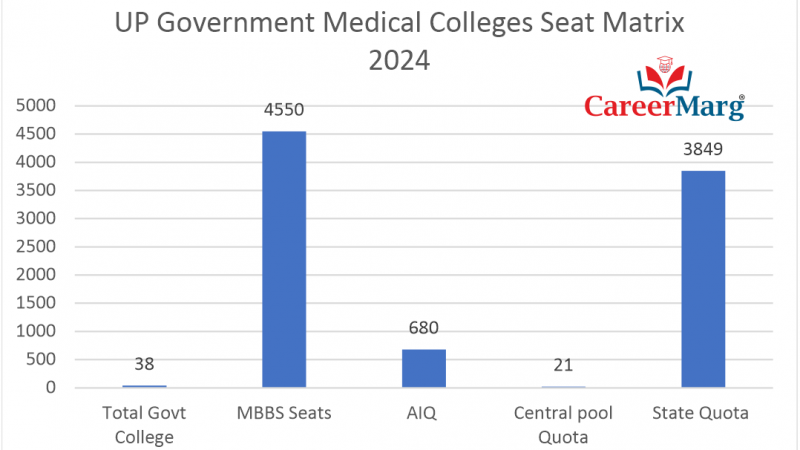
UP Government Medical Colleges Seat Matrix 2024Sr.No.Name of CollegesYear of InceptionMBBS SeatsAIQ Central pool QuotaState Quota 1King George. Medical University, Lucknow19112503732102S.N. Medical College, Agra19472003031673G.S.V.M. Medical Colleg, Kanpur19562503732104M.L.N....
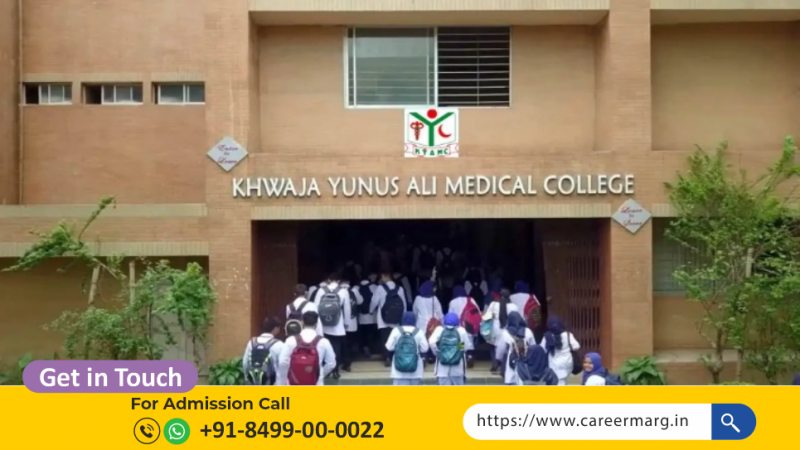
The fees Structure of Khwaja Yunus Ali Medical College (KYAMC) are as follows below:S.NOPARTICULARFEES (USD)1Course fees27,0002Tuition & Accommodation fees (300x60)18,0003Internship Fees2,5004Government Levy1,000Total48,500 /-Fees Installment DetailsS.No.InstallmentAmount USDAmount INR1At the time of....
